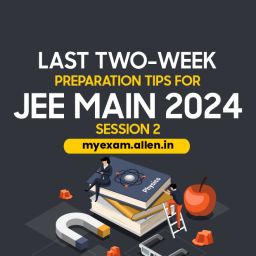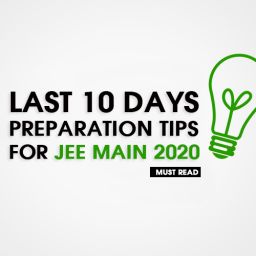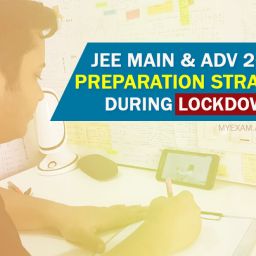Strategic Approach to Revision can make all the Crucial Difference
JEE Main is among the most rigorous entrance exam in the country. It indeed requires good revision for a higher rank. There is an extensive syllabus to be covered, so you would like to have a strategic approach in revision. Here are few proven strategies on how to maximize your time for revision and be successful in the exam.
1. Plan a Revision Schedule
It is very important to get a scheduled plan to revise systematically. The schedule ensures that some amount of time is spent on every subject/topic without missing an area.
Scheduling Tips:
- Spend more time on topics where you are weak.
- Plan individual slots for Physics, Chemistry, and Mathematics for the day.
- Be realistic while setting goals at every session so as to adhere to the same schedule consistently.
- Leave time for unexpected challenges and last-minute revisions.
2. Focus on High-Weightage Topics
There have always been a few topics that have recurred in the JEE Main exam with more weightage. Focus on those will automatically make you optimize the total score.
High-Weightage Topics:
- Physics: Mechanics, Electricity & Magnetism, Optics, Thermodynamics, and Modern Physics.
- Chemistry: Chemical Bonding, Thermodynamics, Coordination Compounds, and Organic Chemistry (Reaction Mechanisms and Named Reactions).
- Mathematics: Calculus, Algebra, Coordinate Geometry, and Trigonometry.
Tip: Once you revise these topics, you have revised a huge part of the syllabus effectively.
3. Make Use of Your Handwritten Notes
The most effective tool for revision is your personal notes. Since they are short, pithy forms of summarizing months of study, revising them is that much easier.
How To Revise Using Notes:
- Review key formulas, concepts, and definitions every day
- Highlight important points for easy reference
- Use charts, diagrams, and mind maps for better visualization and retention
4. Do Mock Tests
Mock tests would exactly feel as though a real exam. They would teach you to be in possession of a watch while keeping track of everything around you at the same time.
Mock Test Tips
- Do at least one full-length test each week, increasing frequency as the date of the test approaches
- Analyze the performance after every test so mistakes are known
- Improve on speed and accuracy by practicing under timed conditions
5. Previous Year Papers/Practice Questions
Solve some previous year papers or practice questions as this would help in getting an idea of what kind of questions can be expected in the exam. The time management factor is key here.
Previous year’s papers are a treasure of information regarding the exam’s pattern, the difficulty level, and frequently asked questions.
Why Solve Previous Year Papers:
- Get hold of the nature of questions and types of questions.
- Recurrent patterns or favorite topics.
- Boost confidence by solving real exam-level problems.
6. Conceptual Enhancements Through Problem-Solving
JEE Main is not a process of mere memorizing but application of concepts in solving problems. Regular practice creates a great impression in your mind.
Problem-Solving Strategies
- Attempt problems from different levels, to test your understanding.
- Attempt multi-concept problems as JEE Main uses it in the form of one problem.
- Keep a notebook of the mistakes you make and keep revisiting it to avoid making that mistake again.
7. Repeat Formulas and Theorems Daily
Math and Physics for formulas and theorems, and Chemistry for key reactions and mechanisms.
Tips on Formula Revision:
- Have a separate notebook for formulas, theorems, and equations.
- 15-20 minutes each day go through the revision.
- Attempt question practice questions that directly depend on formulas.
8. Find Weak Areas
Knowing and working on your weak areas can give you a decent percentage of a more confident boost.
How to Work on Weak Areas:
- Review more relevant theory and attempt extra questions on weak topics
- Ask teachers and peers if you don’t understand concepts
- Don’t procrastinate, try difficult topics
Revisions do not mean reading everything over and over again. Instead, they mean revising the concepts until they are completely grasped and problems solved in an optimal manner.
These strategies will enhance your preparation, help you to know where you stand, and make your entry into the examination hall confidently.
All the best for cracking JEE Main; the keys are consistent effort and a positive attitude.
Recommended Read:-
- A Winning Daily Routine for JEE Success
- Preparation Strategy for JEE and NEET-UG
- Study Hacks of the Toppers – Key to Success
- Tips for Students to Build a Strong Foundation
- Tips To Boost NEET UG Scores: A Comprehensive Guide
- Benefits of Daily Routine for Success in JEE and NEET
- NEET-UG 2024 Examination – Everything You Need To Know
- Tips to Overcome Procrastination in JEE and NEET Preparation
- Tips To Avoid Stress & Anxiety in JEE and NEET UG Preparation
- Nurturing Positive Mindset During JEE and NEET-UG Preparation
- Tips To Improve Concentration For JEE and NEET UG Preparation
- The Ultimate Guide To Acing NEET-UG: Best Preparation Strategy
- Avoid 10 Common Mistakes During JEE Main Preparation For Success
- Navigating NEET-UG: A Guide To Avoid Common Preparation Mistakes
- Cracking The Code: A Guide To Achieve 100 Percentile in JEE Main 2024
- Mastering Time Management: Tips for Competitive Examination Preparation
- Tips For Competitive Exam Aspirants to Keep Social Media Distractions At Bay



















